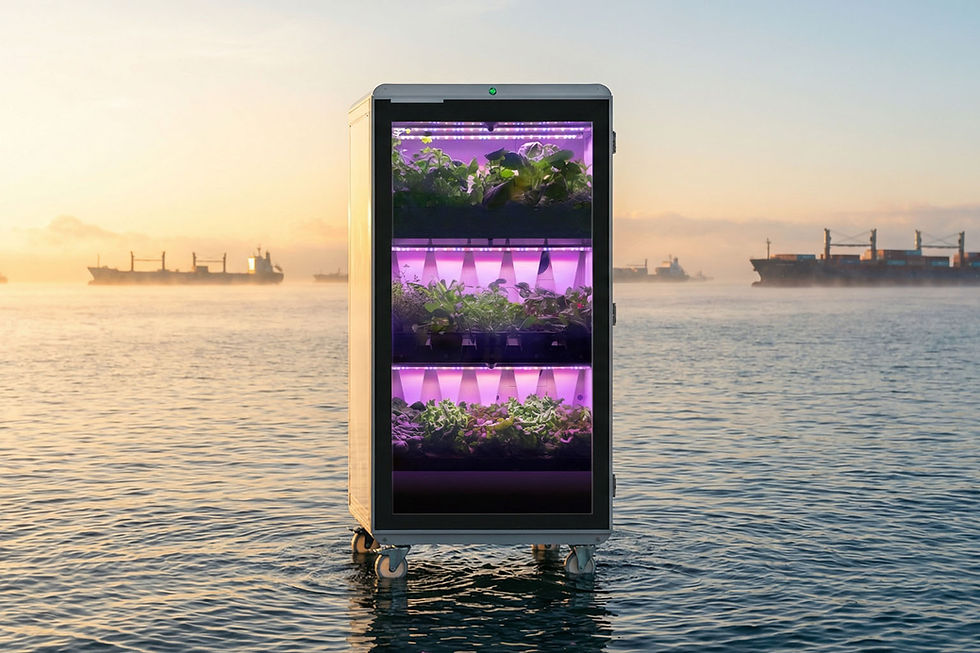A New Standard for Crew Wellness: Growing Fresh Food at Sea
- May 28, 2025
- 3 min read
Updated: Jul 8, 2025
Life at sea is demanding. Long hours, physical labor, and extended time away from home all take a toll. Yet one of the most impactful ways to improve the daily lives of seafarers has often been overlooked: their meals.
On many commercial vessels today, fresh vegetables are a luxury that disappears after the first days of a voyage. Storage limitations, supply schedules, and spoilage all make it difficult to provide crews with a steady supply of nutritious greens. Once the ship leaves port, the lettuce wilts, the herbs lose their flavor, and what remains is often processed and uninspiring.
This is not just about taste. The lack of fresh produce directly affects physical and mental well-being. Without key vitamins and minerals, crew members are more likely to experience fatigue, digestive issues, and weakened immune systems. Over time, this erodes morale and productivity on board.
The industry is beginning to rethink this problem in a very practical way. The question is no longer how to preserve vegetables longer, but how to grow them right where they are needed.

Rethinking fresh food through smart systems
Agwa has introduced a new kind of onboard farming solution that is quickly gaining traction. These compact growing units, powered by artificial intelligence, are capable of producing fresh leafy greens and herbs in nearly any maritime environment. They do not require soil, prior knowledge, or constant care.
What sets Agwa’s system apart is its simplicity. Once the device is installed and connected to water and Wi-Fi, it handles everything on its own. Inside each unit, sensors and cameras track plant development and environmental conditions. The system makes adjustments in real time, ensuring that each plant receives the right amount of light, nutrients, and water.
Crew members do not need to worry about measuring fertilizer or adjusting temperatures. A mobile app shows what is growing, when it will be ready to harvest, and what to plant next. It is a plug-and-grow experience designed for the unique challenges of life at sea.
Everyday impact on ships worldwide
What started as a concept has now become a reality on vessels operated by some of the world’s most respected shipping companies. From Eastern Pacific to Synergy Marine, Agwa’s growing systems are now in daily use, supporting real crews with real food.
On a typical tanker or container vessel, a small number of units can supply enough greens for several fresh salads each week. The change is more than nutritional. Crews report that seeing green plants and participating in the harvest improves their mood and brings a sense of connection to something alive and growing. In the middle of the ocean, that is no small thing.
One captain described the onboard farm as a conversation starter. Crew members gather around the unit, check the progress of the plants, and plan meals together. It is a shared experience that adds something unexpected to the routine of the voyage.
A step toward a better maritime culture
Beyond the human benefits, there are clear environmental and operational advantages. Ships that grow their own food reduce dependency on frequent resupply, lower food waste, and shrink their carbon footprint. With supply chains under pressure and sustainability becoming a core business value, this shift is both smart and timely.
Growing food onboard does not require a revolution in ship design. It only takes a small space, a bit of electricity, and a willingness to do things differently. What it offers in return is a healthier crew, improved day-to-day life, and a stronger message about what it means to care for the people who move the world.
Agwa is not changing the menu. It is changing the mindset.


